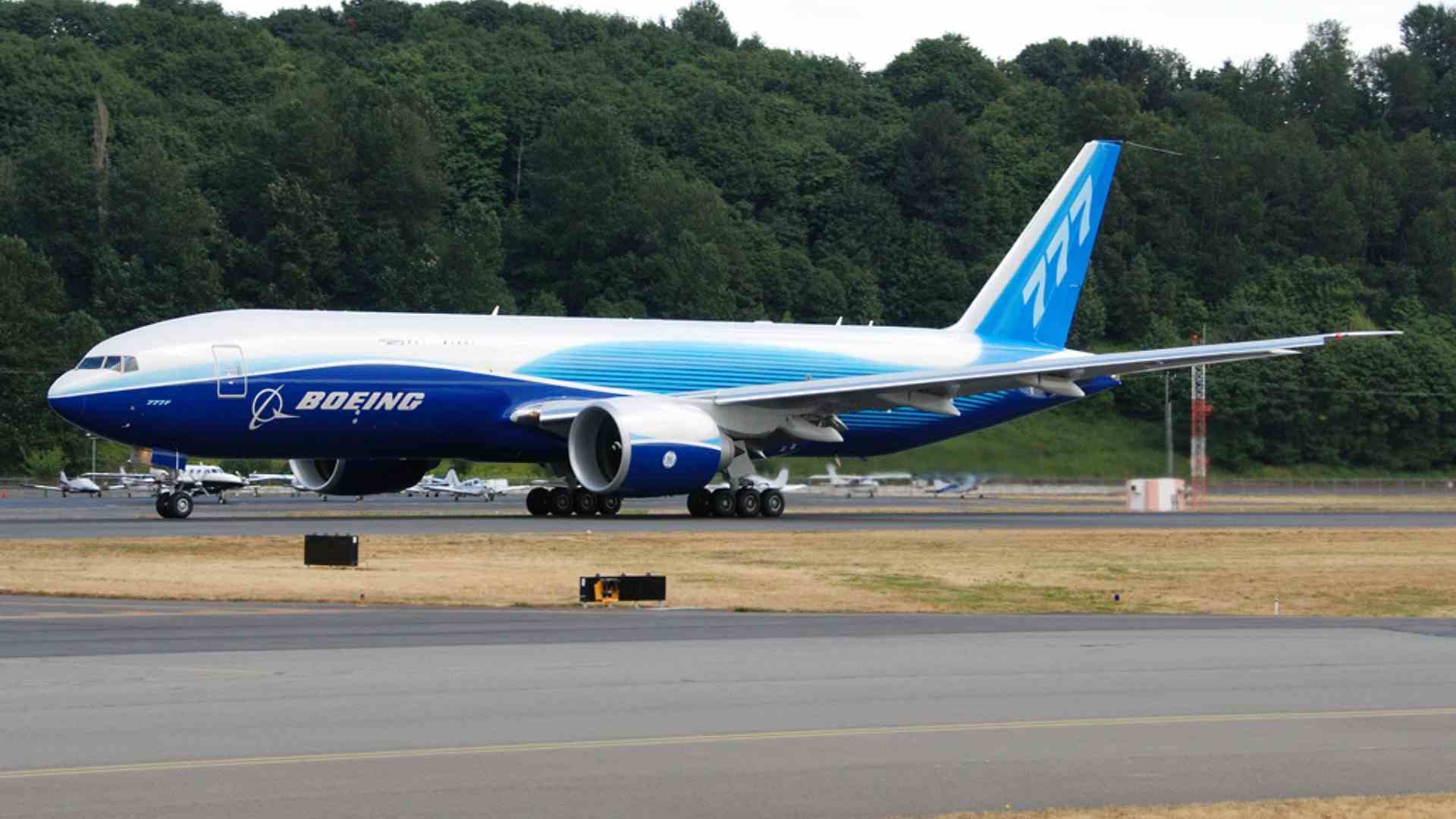Boeing Planes Explosion Statistics
Boeing planes explosion – Boeing, the renowned aerospace manufacturer, has been associated with a series of plane explosion incidents that have raised concerns about the safety and reliability of its aircraft.
These incidents, while infrequent, have had a significant impact on the aviation industry and public perception of Boeing’s products. In this section, we will delve into the statistics, causes, and consequences of Boeing plane explosions, providing a comprehensive overview of this critical topic.
Frequency of Boeing Plane Explosions
Boeing plane explosions are relatively rare occurrences, but they have occurred with varying degrees of severity and impact. According to data from the National Transportation Safety Board (NTSB), there have been 12 fatal Boeing plane explosions since 1959, resulting in the tragic loss of over 1,000 lives.
The frequency of Boeing plane explosions has fluctuated over time, with periods of relative calm punctuated by clusters of incidents. For example, between 1959 and 1989, there were only two fatal Boeing plane explosions. However, from 1990 to 2001, there were five fatal explosions, including the tragic crash of TWA Flight 800 in 1996.
Causes of Boeing Plane Explosions
The causes of Boeing plane explosions are complex and varied, often involving a combination of factors. However, some of the most common causes include:
- Mechanical failures: Explosions can occur due to mechanical failures, such as engine malfunctions, hydraulic system failures, or structural defects.
- Electrical malfunctions: Electrical malfunctions, such as short circuits or faulty wiring, can also lead to explosions.
- Fuel leaks: Fuel leaks can create a flammable environment that can be ignited by sparks or other sources of heat.
- Terrorism: While rare, terrorist attacks have also been a cause of Boeing plane explosions.
Impact of Boeing Plane Explosions
Boeing plane explosions have had a significant impact on the aviation industry and public perception of Boeing’s products. These incidents have led to:
- Loss of life: Tragically, Boeing plane explosions have resulted in the loss of thousands of lives.
- Financial losses: The aftermath of Boeing plane explosions can result in substantial financial losses for the airline industry, Boeing, and insurance companies.
- Damaged reputation: Boeing plane explosions can damage the reputation of the company and erode public trust in its products.
- Increased regulation: In response to Boeing plane explosions, regulatory agencies have implemented stricter safety regulations for aircraft design and maintenance.
Notable Boeing Plane Explosions

Boeing, a prominent aircraft manufacturer, has experienced several notable plane explosions throughout its history. These incidents have resulted in tragic loss of life and raised concerns about the safety and reliability of Boeing aircraft.
The following are some of the most significant Boeing plane explosions that have occurred:
Japan Airlines Flight 123
- Aircraft Model: Boeing 747SR
- Date: August 12, 1985
- Location: Mount Takamagahara, Japan
- Outcome: 520 fatalities
Japan Airlines Flight 123 was a scheduled passenger flight from Tokyo to Osaka, Japan. Shortly after takeoff, the aircraft’s rear bulkhead failed, causing an explosive decompression and the loss of the aircraft’s vertical stabilizer. The plane crashed into Mount Takamagahara, killing all but four of the 524 passengers and crew on board.
TWA Flight 800
- Aircraft Model: Boeing 747-100
- Date: July 17, 1996
- Location: Atlantic Ocean, near Long Island, New York
- Outcome: 230 fatalities
TWA Flight 800 was a scheduled passenger flight from New York City to Paris, France. Shortly after takeoff, the aircraft exploded in mid-air, killing all 230 passengers and crew on board. The cause of the explosion was determined to be a fuel tank explosion, which was likely triggered by a short circuit.
Ethiopian Airlines Flight 302
- Aircraft Model: Boeing 737 MAX 8
- Date: March 10, 2019
- Location: Bishoftu, Ethiopia
- Outcome: 157 fatalities
Ethiopian Airlines Flight 302 was a scheduled passenger flight from Addis Ababa, Ethiopia to Nairobi, Kenya. Shortly after takeoff, the aircraft crashed into the ground, killing all 157 passengers and crew on board. The cause of the crash was determined to be a design flaw in the aircraft’s flight control system.
Causes of Boeing Plane Explosions: Boeing Planes Explosion
Boeing plane explosions can occur due to various factors, including design flaws, manufacturing defects, maintenance issues, pilot error, and external factors.
Design flaws can arise during the aircraft’s design phase, leading to inherent vulnerabilities or weaknesses that make it susceptible to explosions. These flaws may involve structural deficiencies, electrical system malfunctions, or fuel system vulnerabilities.
Manufacturing Defects
Manufacturing defects occur during the production process, resulting in faulty components or improper assembly. These defects can compromise the aircraft’s structural integrity, electrical systems, or fuel systems, increasing the risk of explosions.
Maintenance Issues
Inadequate or improper maintenance can lead to the deterioration of aircraft components, increasing the likelihood of malfunctions and potential explosions. Neglected maintenance can result in wear and tear, corrosion, or other issues that compromise the aircraft’s safety.
Pilot Error
Pilot error, while less common, can also contribute to Boeing plane explosions. Human factors such as fatigue, distraction, or improper handling of the aircraft can lead to operational mistakes that increase the risk of explosions.
External Factors
External factors, such as lightning strikes or bird strikes, can also cause Boeing plane explosions. Lightning strikes can disrupt electrical systems, while bird strikes can damage engines or fuel tanks, leading to potential explosions.
Impact of Boeing Plane Explosions
Boeing plane explosions have a profound impact on various aspects of society, including:
- Loss of life and injuries: Explosions on Boeing planes can result in catastrophic loss of life and severe injuries to passengers, crew members, and individuals on the ground. The sudden and violent nature of these events leaves little time for escape, leading to devastating consequences.
- Damage to property and infrastructure: Explosions on Boeing planes can cause significant damage to property and infrastructure. The impact of the blast and debris can damage buildings, vehicles, and other structures in the vicinity of the crash site. This damage can lead to financial losses and disruption of daily life for communities affected by the explosion.
- Economic consequences: Boeing plane explosions can have severe economic consequences. The loss of life, property damage, and disruption of air travel can lead to substantial financial losses for airlines, insurance companies, and the wider economy. The grounding of Boeing planes following explosions can also disrupt supply chains and impact industries that rely on air transportation.
- Public perception and trust: Boeing plane explosions can erode public trust in the safety of air travel. When a plane explodes, it raises concerns about the reliability of the aircraft and the competence of the airline industry. This can lead to decreased passenger confidence and reluctance to fly, which can have long-term effects on the aviation sector.
Safety Measures and Regulations

Boeing and aviation authorities have implemented various safety measures and regulations to prevent plane explosions, including design enhancements, improved maintenance procedures, and enhanced security protocols.
These measures have been effective in significantly reducing the incidence of plane explosions, but there is always room for improvement. Ongoing research and development efforts focus on further enhancing aircraft safety and mitigating potential risks.
Design Enhancements
- Fuel Tank Protection: Fuel tanks are designed with features such as inerting systems, which reduce the risk of fuel vapors igniting.
- Fire Suppression Systems: Advanced fire suppression systems are installed in aircraft to quickly extinguish any fires that may occur.
- Redundant Systems: Critical systems, such as electrical and hydraulic systems, are designed with redundancies to ensure continued operation in the event of a failure.
Maintenance Procedures, Boeing planes explosion
- Regular Inspections: Aircraft undergo regular inspections to identify and address potential maintenance issues that could lead to explosions.
- Preventive Maintenance: Scheduled maintenance programs are designed to proactively replace or repair components before they fail, reducing the risk of explosions.
- Quality Control: Stringent quality control measures are implemented throughout the manufacturing and maintenance processes to ensure aircraft meet safety standards.
Security Protocols
- Screening and Security Checks: Passengers and luggage are screened for potential explosives and other hazardous materials.
- Restricted Areas: Access to sensitive areas of airports and aircraft is restricted to authorized personnel.
- Law Enforcement Collaboration: Aviation authorities work closely with law enforcement agencies to prevent and respond to security threats.
Comparison to Other Aircraft Manufacturers

Boeing is one of the world’s leading aircraft manufacturers, with a long and storied history. However, it is not the only aircraft manufacturer in the world. Other major manufacturers include Airbus, Lockheed Martin, and Bombardier. Each of these manufacturers has its own strengths and weaknesses, and their safety records vary accordingly.
In general, Boeing planes have a good safety record. However, there have been a number of notable Boeing plane explosions over the years. These explosions have resulted in the deaths of hundreds of people and have raised questions about the safety of Boeing planes.
Safety Records of Different Aircraft Manufacturers
The safety records of different aircraft manufacturers vary. Airbus, for example, has a slightly better safety record than Boeing. This is likely due to the fact that Airbus planes are newer, on average, than Boeing planes. Lockheed Martin and Bombardier also have good safety records, but they produce a smaller number of planes than Boeing and Airbus.
It is important to note that the safety record of an aircraft manufacturer is not the only factor to consider when choosing an airplane. Other factors, such as the type of plane, the age of the plane, and the maintenance history of the plane, are also important.